Dietary magnesium intake and the risk of cardiovascular disease, type 2 diabetes, and all-cause mortality: a dose-response meta-analysis of prospective cohort studies
- PMID: 27927203
- PMCID: PMC5143460
- DOI: 10.1186/s12916-016-0742-z
Dietary magnesium intake and the risk of cardiovascular disease, type 2 diabetes, and all-cause mortality: a dose-response meta-analysis of prospective cohort studies
Abstract
Background: Although studies have examined the association between dietary magnesium intake and health outcome, the results are inconclusive. Here, we conducted a dose-response meta-analysis of prospective cohort studies in order to investigate the correlation between magnesium intake and the risk of cardiovascular disease (CVD), type 2 diabetes (T2D), and all-cause mortality.
Methods: PubMed, EMBASE, and Web of Science were searched for articles that contained risk estimates for the outcomes of interest and were published through May 31, 2016. The pooled results were analyzed using a random-effects model.
Results: Forty prospective cohort studies totaling more than 1 million participants were included in the analysis. During the follow-up periods (ranging from 4 to 30 years), 7678 cases of CVD, 6845 cases of coronary heart disease (CHD), 701 cases of heart failure, 14,755 cases of stroke, 26,299 cases of T2D, and 10,983 deaths were reported. No significant association was observed between increasing dietary magnesium intake (per 100 mg/day increment) and the risk of total CVD (RR: 0.99; 95% CI, 0.88-1.10) or CHD (RR: 0.92; 95% CI, 0.85-1.01). However, the same incremental increase in magnesium intake was associated with a 22% reduction in the risk of heart failure (RR: 0.78; 95% CI, 0.69-0.89) and a 7% reduction in the risk of stroke (RR: 0.93; 95% CI, 0.89-0.97). Moreover, the summary relative risks of T2D and mortality per 100 mg/day increment in magnesium intake were 0.81 (95% CI, 0.77-0.86) and 0.90 (95% CI, 0.81-0.99), respectively.
Conclusions: Increasing dietary magnesium intake is associated with a reduced risk of stroke, heart failure, diabetes, and all-cause mortality, but not CHD or total CVD. These findings support the notion that increasing dietary magnesium might provide health benefits.
Keywords: All-cause mortality; Cardiovascular disease; Magnesium; Meta-analysis; Type 2 diabetes.
Figures
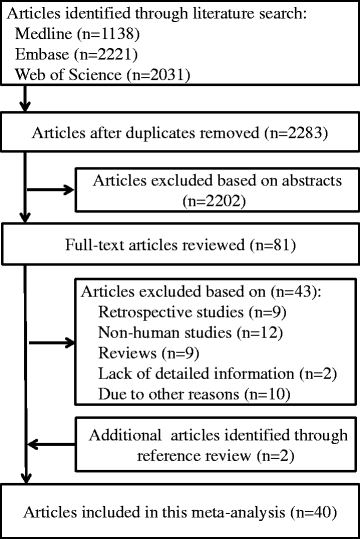
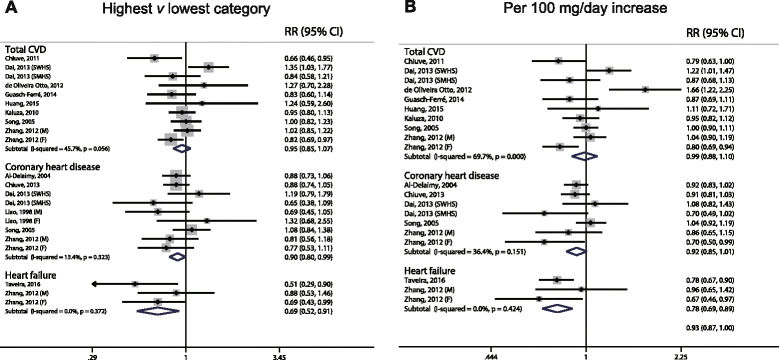
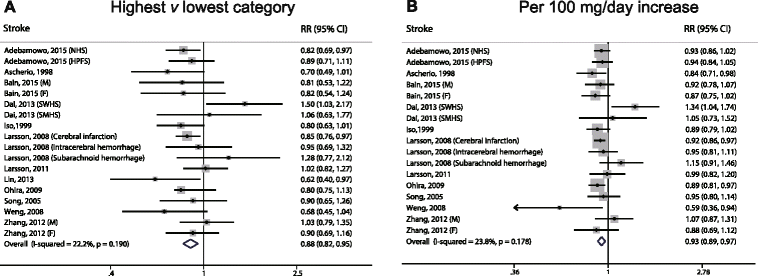
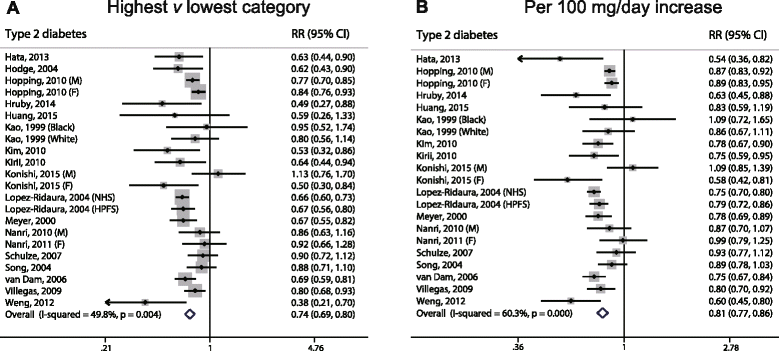
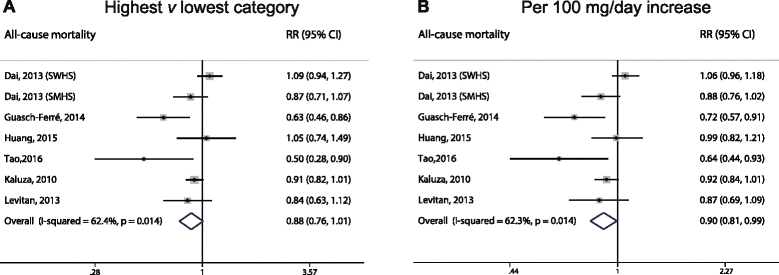
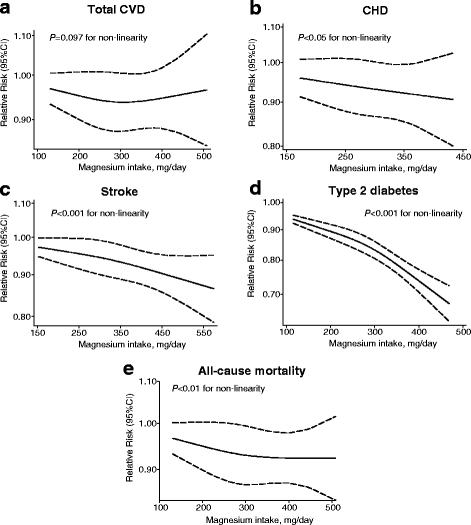
References
Publication types
MeSH terms
Substances
LinkOut - more resources
Full Text Sources
Other Literature Sources
Medical

